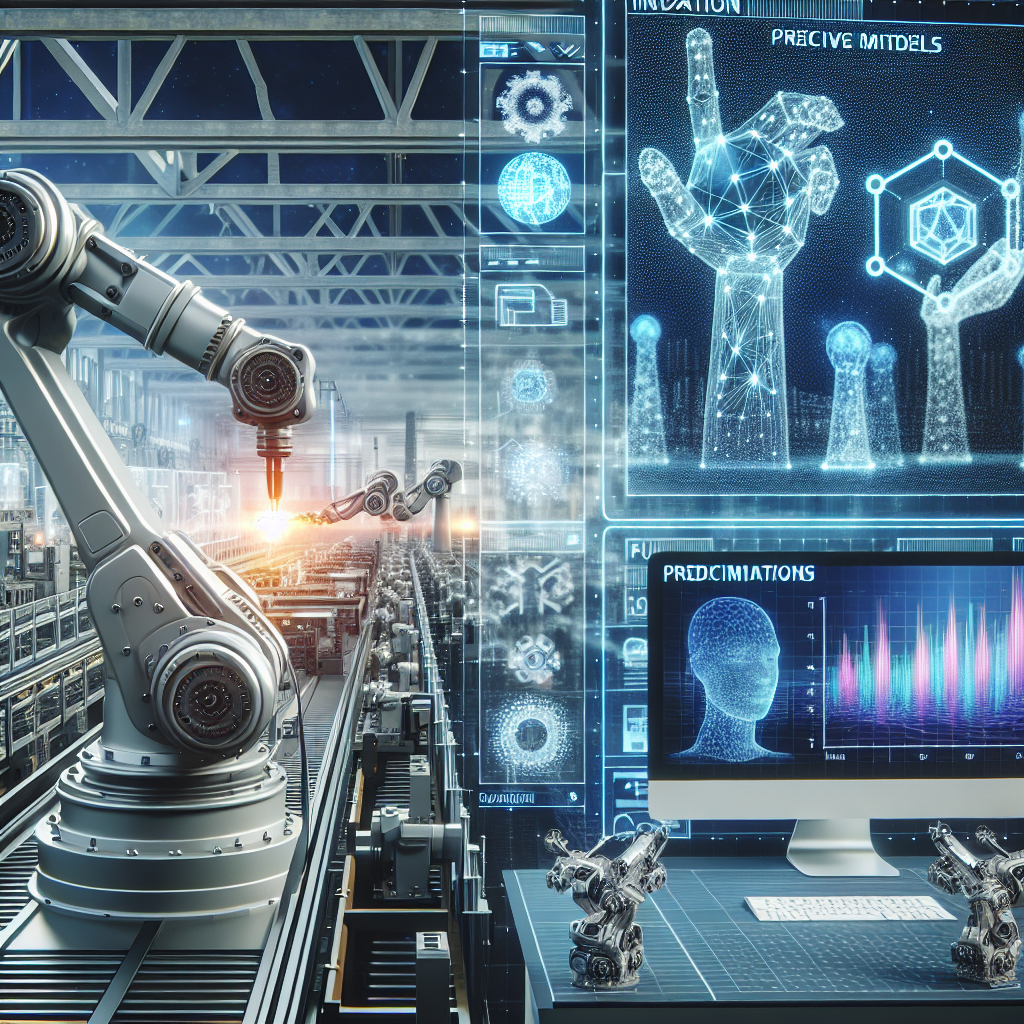Artificial Intelligence (AI) and Machine Learning (ML) have revolutionized the manufacturing industry in recent years, providing companies with new tools and capabilities to optimize their production processes, improve efficiency, and drive innovation. From predictive maintenance to quality control and supply chain management, AI and ML technologies are transforming the way manufacturers operate and compete in today’s fast-paced global market.
AI and ML in Manufacturing
AI and ML technologies are being increasingly adopted in the manufacturing sector to enhance operational efficiency, reduce costs, and improve product quality. Here are some key areas where AI and ML are making a significant impact in manufacturing:
Predictive Maintenance: One of the biggest advantages of AI and ML in manufacturing is their ability to predict and prevent equipment failures before they occur. By analyzing historical data and real-time sensor readings, AI algorithms can identify patterns and trends that indicate when a machine is likely to malfunction. This allows manufacturers to schedule maintenance proactively, reducing downtime and saving costs.
Quality Control: AI and ML algorithms can analyze images, videos, and sensor data to detect defects in products and ensure that they meet quality standards. This technology can be used to perform automated inspections on the production line, flagging any products that do not meet specifications for further inspection or rework.
Supply Chain Management: AI and ML can optimize supply chain operations by predicting demand, identifying potential bottlenecks, and optimizing inventory levels. By analyzing historical data and external factors such as weather patterns and market trends, AI algorithms can help manufacturers make better decisions about sourcing, production planning, and distribution.
Process Optimization: AI and ML can be used to optimize manufacturing processes by analyzing data from sensors, machines, and production lines. By identifying inefficiencies and bottlenecks, manufacturers can make real-time adjustments to improve productivity and reduce waste.
Product Design and Development: AI and ML technologies can help manufacturers design better products by analyzing customer feedback, market trends, and performance data. By leveraging these insights, manufacturers can create products that better meet customer needs and preferences.
FAQs:
Q: What are the benefits of AI and ML in manufacturing?
A: AI and ML technologies offer numerous benefits to manufacturers, including improved operational efficiency, reduced downtime, better quality control, and enhanced product design. By leveraging these technologies, manufacturers can stay competitive in today’s fast-paced market and drive innovation in their industry.
Q: How can manufacturers implement AI and ML in their operations?
A: Manufacturers can implement AI and ML technologies in their operations by collecting and analyzing data from sensors, machines, and production lines. By investing in the right tools and expertise, manufacturers can leverage AI and ML to optimize their processes, improve product quality, and reduce costs.
Q: What are some challenges of implementing AI and ML in manufacturing?
A: Some challenges of implementing AI and ML in manufacturing include data quality issues, lack of expertise, and resistance to change. Manufacturers may need to invest in data infrastructure, training, and organizational change management to successfully adopt these technologies.
Q: What are some examples of successful AI and ML implementations in manufacturing?
A: There are many examples of successful AI and ML implementations in manufacturing, including predictive maintenance systems, quality control algorithms, and supply chain optimization tools. Companies such as Siemens, General Electric, and Ford have all leveraged AI and ML technologies to improve their operations and drive innovation.
In conclusion, AI and ML technologies are transforming the manufacturing industry by providing companies with new tools and capabilities to optimize their production processes, improve efficiency, and drive innovation. From predictive maintenance to quality control and supply chain management, AI and ML are helping manufacturers stay competitive in today’s fast-paced global market. By investing in these technologies and leveraging their benefits, manufacturers can achieve significant improvements in operational efficiency, product quality, and customer satisfaction.

